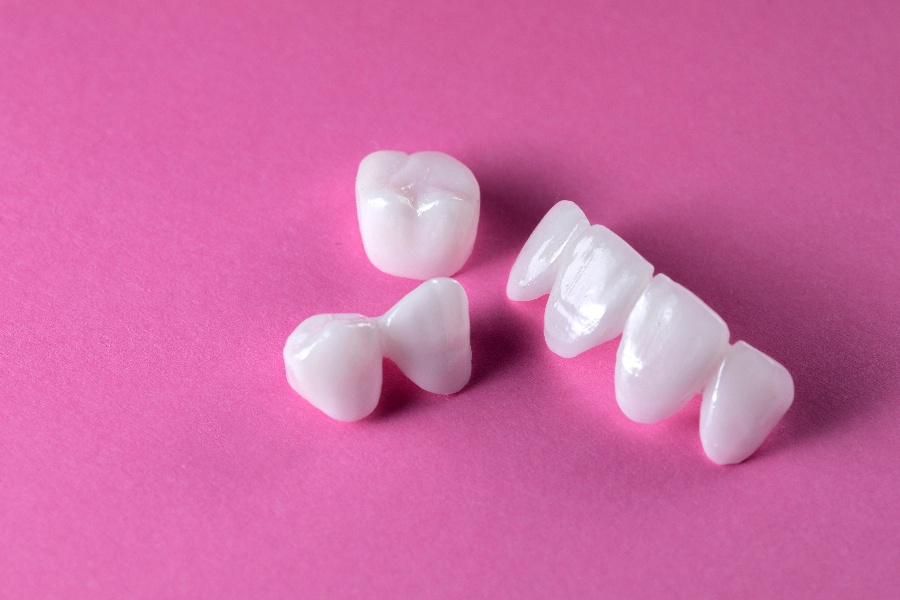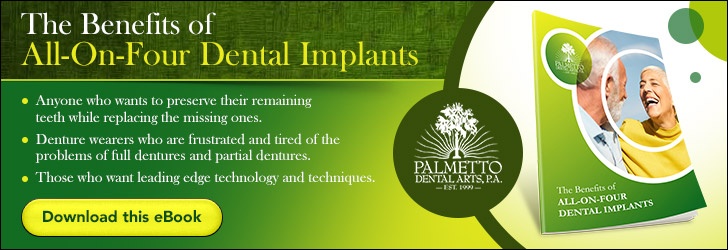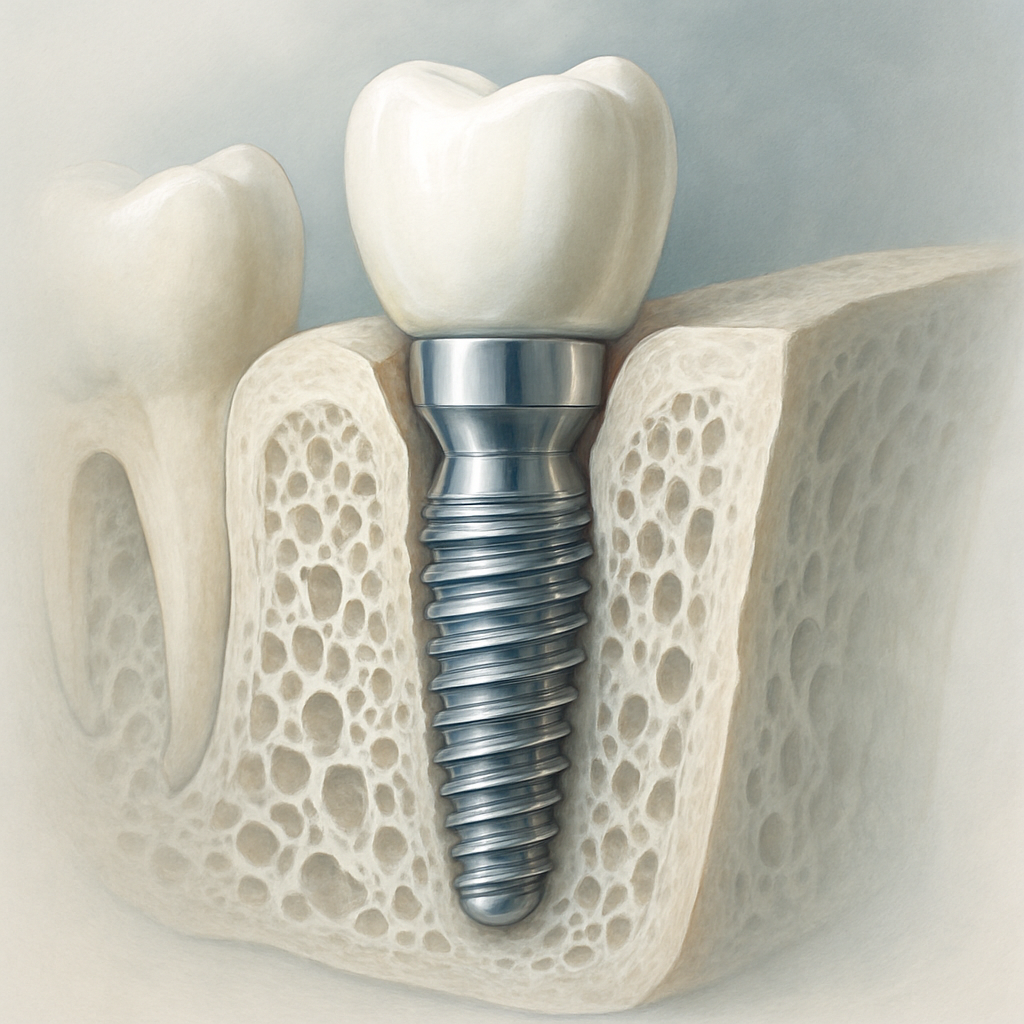Dentistry has changed significantly in recent years. It has evolved to include many new ways to repair damaged teeth and replace missing ones. This can cause confusion when considering the many choices you might have to improve your smile and the function of your teeth.
Why Is Your Smile So Important?
“A smile is a curve that sets everything straight.” Of course, Phyllis Diller may have overstated the power of a smile in her twentieth-century quip. Or maybe she was prophetic in forecasting what scientists would eventually uncover in the twenty-first century about this simple act that almost everyone can accomplish daily.
Researchers have found that when we smile, our brains release powerful chemicals that positively affect our physical and mental health. These include neurotransmitters like dopamine and serotonin that make us feel happy, focused, and motivated. The effect of smiling has also been found to have the same effect on our brains as eating 2,000 chocolate bars or receiving a $16,000 cash gift.
However, we don’t need researchers to inform us that we know we look better and feel better when we smile. Smile makeovers are no longer limited to celebrities on reality television shows. Many people today choose one or more cosmetic dentistry procedures to achieve a bright and healthy smile.
How Can Cosmetic Dentistry Improve Your Smile?
There are many possible impediments to having the smile you want. It could be something minor that requires a minor dental treatment, such as bonding for a chipped tooth. However, some people have many or all of their teeth needing treatment as part of full mouth rehabilitation.
Cosmetic dentistry can help correct many dental conditions to improve your smile and oral health. These include the following:
- Discolored teeth.
- Crooked teeth.
- Misaligned bite.
- Misshapen teeth.
- Over or undersized teeth.
- Missing teeth.
- Swollen or receding gums.
- TMJ health and function.
- Cracked, broken, or chipped teeth.
- Defective dental restorations.
What Are Dental Veneers?
Veneers are thin coverings placed on the front of a tooth for cosmetic improvement. Typically, veneers are made from porcelain and bonded to the tooth using dental cement. Before placing the veneer, a thin layer of enamel is removed from the tooth.
Dental veneers are a popular cosmetic dental treatment to achieve optimal esthetic results in some cases. Dental veneers can correct issues such as:
- Discolored teeth. Some teeth are discolored due to surface stains from foods and drinks or dental plaque. These can usually be resolved with professional teeth cleaning and whitening. However, some stains, such as those from smoking, medications, or trauma, are more permanent and require covering the teeth with veneers or crowns.
- Chipped teeth. Veneers may be the preferred treatment if you have several chipped front teeth. Severely broken teeth, however, often require full porcelain dental crowns.
- Gaps between teeth. A space or diastema between two teeth can be closed by placing veneers that are slightly larger than your natural teeth. This small amount of extra porcelain can create contact between the adjacent teeth.
- Crooked teeth. Some slightly misaligned teeth can be made to look straighter with dental veneers. Veneers have advantages over orthodontics in correcting other cosmetic issues such as discoloration and being completed in less time.
- Worn teeth. Some teeth worn down due to grinding, diet, or age can be cosmetically restored with veneers.
Advantages and Disadvantages of Veneers
Whether dental veneers are an option will depend on the cosmetic and functional issues that need treatment. Veneers are one of several choices you may have in improving your smile. Understanding the pros and cons of veneers can help you make a more informed decision.
Advantages of Dental Veneers
- Natural appearance. Veneers are made of porcelain that can be made in the best shade of white for optimal cosmetic appearance. Additionally, their translucency reflects light, much like tooth enamel.
- Durability. Porcelain is a strong dental material that can last a long time with proper care.
- Stain resistant. Unlike tooth enamel and dental bonding, veneers resist stains to give you a permanently white smile. Unlike bleaching, veneers do not have to be repeated to keep your teeth white.
- Fast results. Dental veneers require less time to accomplish your cosmetic goals than other options, such as braces or crowns.
- Repairs minor enamel defects. Dental veneers can repair slightly damaged enamel without extensive tooth removal.
Disadvantages of Dental Veneers
- Chipping. Veneers are at more risk of chipping than crowns when biting hard foods.
- Requires tooth removal. Veneers require less tooth removal than crowns but are still irreversible due to the need to remove a thin layer of enamel from the front surface of a tooth.
- Sensitivity. It is possible to have some sensitivity to heat and cold after getting veneers due to the removal of enamel. When this occurs, it is often mild and temporary.
What Are Dental Implants?
Unlike dental veneers that repair chipped, discolored, or misaligned teeth, implants replace one or more missing teeth. An implant is a screw or post placed in the jawbone to replace a missing tooth’s root. However, the term implant is generally used to describe the implant and the replacement tooth or teeth that implants support.
Implants can be used in various ways to:
- Replace a single missing tooth.
- Support a fixed dental bridge or removable partial denture.
- Support a complete removable denture.
There are many benefits to implants when used to replace missing teeth, such as:
- Looking and feeling like natural teeth.
- Restoring normal biting forces for improved chewing.
- Preventing future loss of jaw bone in the area of missing teeth.
- Easy to maintain.
- Potential to last a lifetime.
- Protecting adjacent teeth from tooth structure removal as needed for a fixed dental bridge.
Choosing Between Veneers and Implants
Dental implants and veneers are used for different circumstances. Veneers and porcelain crowns are used to repair and restore existing teeth. Implants are used to help replace missing teeth by supporting a fixed or removable prosthesis. Therefore, you may have a decision to make, but it is unlikely that your choice will be between veneers and implants.
Schedule an Appointment
Palmetto Dental Arts provide a full range of dental services to help you improve your smile. Contact us or call us online to learn more about how we can help you with veneers, dental implants, and other cosmetic dental treatments.







